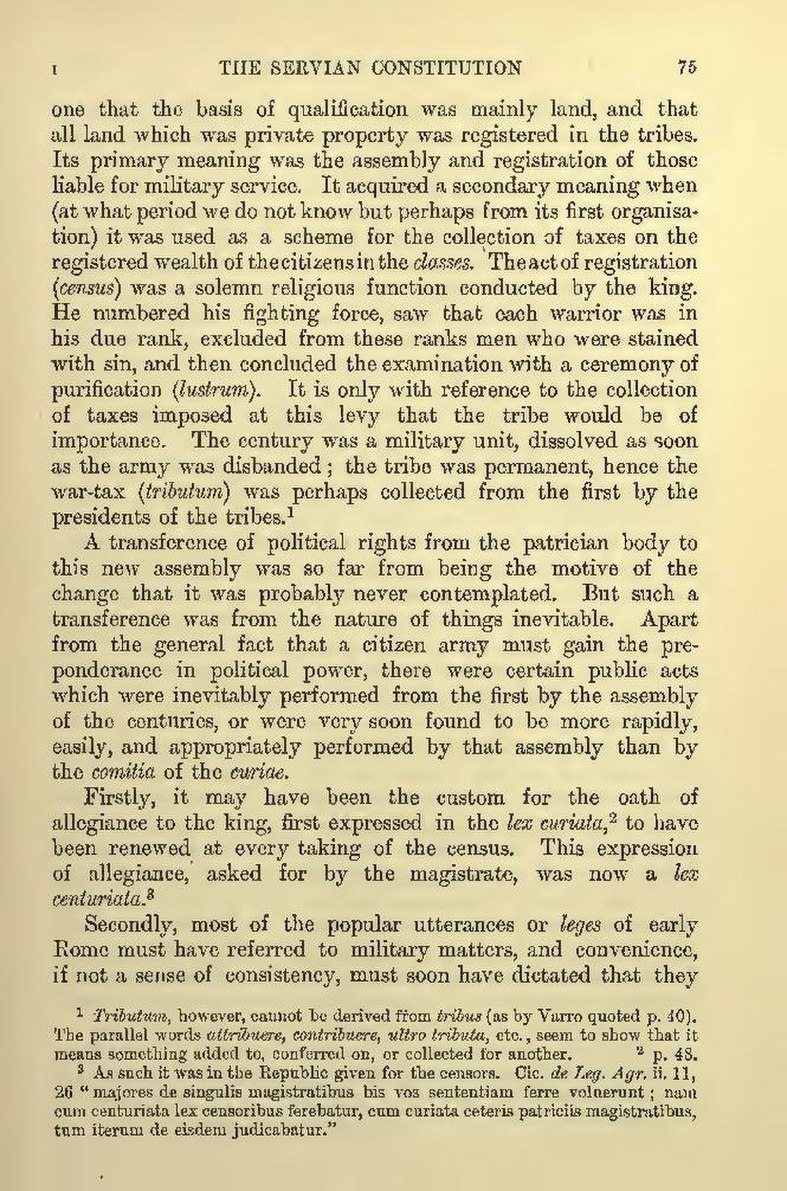one that the basis of qualification was mainly land, and that all land which was private property was registered in the tribes. Its primary meaning was the assembly and registration of those liable for military service. It acquired a secondary meaning when (at what period we do not know but perhaps from its first organisation) it was used as a scheme for the collection of taxes on the registered wealth of the citizens in the classes. The act of registration (census) was a solemn religious function conducted by the king. He numbered his fighting force, saw that each warrior was in his due rank, excluded from these ranks men who were stained with sin, and then concluded the examination with a ceremony of purification (lustrum). It is only with reference to the collection of taxes imposed at this levy that the tribe would be of importance. The century was a military unit, dissolved as soon as the army was disbanded; the tribe was permanent, hence the war-tax (tributum) was perhaps collected from the first by the presidents of the tribes.[1]
A transference of political rights from the patrician body to this new assembly was so far from being the motive of the change that it was probably never contemplated. But such a transference was from the nature of things inevitable. Apart from the general fact that a citizen army must gain the preponderance in political power, there were certain public acts which were inevitably performed from the first by the assembly of the centuries, or were very soon found to be more rapidly, easily, and appropriately performed by that assembly than by the comitia of the curiae.
Firstly, it may have been the custom for the oath of allegiance to the king, first expressed in the lex curiata,[2] to have been renewed at every taking of the census. This expression of allegiance, asked for by the magistrate, was now a lex centuriata.[3]
Secondly, most of the popular utterances or leges of early Rome must have referred to military matters, and convenience, if not a sense of consistency, must soon have dictated that they
- ↑ Tributum, however, cannot be derived from tribus (as by Varro quoted p. 40). The parallel words attribuere, contribuere, ultro tributa, etc., seem to show that it means something added to, conferred on, or collected for another.
- ↑ p. 48.
- ↑ As such it was in the Republic given for the censors. Cic. de Leg. Agr. ii. 11, 26 "majores de singulis magistratibus bis vos sententiam ferre voluerunt; nam cum centuriata lex censoribus ferebatur, cum curiata ceteris patriciis magistratibus, tum iterum de eisdem judicabatur."
